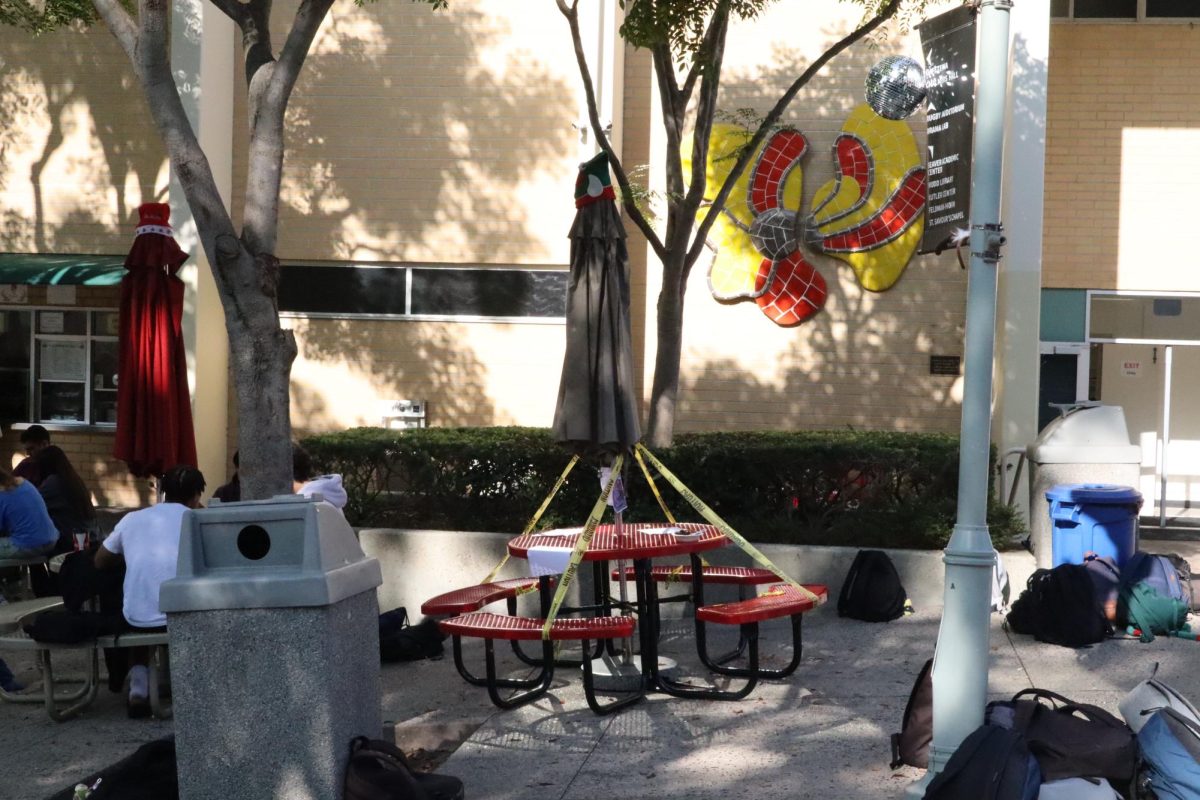Bet on It
December 14, 2022
As Len* passed through the casino of a Las Vegas hotel, he glanced over at the rows of chairs facing the March Madness tournament playing on a large flatscreen television. He turned to his dad, telling him confidently that Loyola and Gonzaga were going to win. His dad legally placed $10 on a three team parlay, hit it and then immediately went to the cashier to collect his cash.
Len said this experience was his first exposure to sports betting, a hobby with which he soon became fascinated.
“I was like, ‘Damn, we can actually make money off of this,’” Len said. “At first, it was just football. And then, with the World Cup and soccer, it became a little bit of that too. On occasion, because I don’t watch it as much, I bet on basketball. I bet on the weekends, especially for Sunday football. On days when I’m free and don’t have much work and stress to deal with and I’m free to watch the games, then I’ll probably put something down.”
Sports betting is only legal in six states across the U.S., not including California. In casinos existing on Native American reservations in the state, the minimum gambling age is 21 years old.
Len said he uses an online gambling site named Bovada to place his sports bets. The company is based in Costa Rica and therefore not subject to California’s online gambling restrictions, but residents of the state are still able to access the site. Bovada has virtually no methods of ensuring its users are above the legal gambling age, with users only being required to mark a checkbox confirming they meet the requirements for their jurisdiction.
Len said many online betting sites have rules that can easily be circumvented.
“It’s pretty much impossible to check ages,” Len said. “First off, you can use parents’ or family members’ IDs. A lot of kids use VPNs to tell the website they’re in a state where gambling is allowed. It’s not that hard at all if you really need to change where you live. I just use a credit card, but I know there are certain apps where you can use cryptocurrency.”
Proposition 27, a 2022 California ballot measure that would have legalized online sports betting through Native American tribes and gambling companies, failed with only 17.7% of votes in favor. For now, efforts to expand sports gambling in California remain halted.
While the topic of gambling is not discussed in the Advanced Placement (AP) Economics curriculum, Mathematics Teacher Kent Palmer, who teaches the course, said the legalization of sports gambling might carry benefits for the state economy.
“I think casinos that currently allow for betting on sports stand to benefit [from its current illegality], as this keeps potential competitors out of their market,” Palmer said. “And whenever initiatives for legalizing illegal things land on the ballot, such as the initial introduction of the California state lottery or the recent legalization of recreational marijuana use, one of the arguments in favor seems inevitably to be, ‘We could tax it and use those revenues for something good.’ I imagine that might be a potential economic impact of any kind of policy change surrounding this issue as well.”
Venture Leader Sophia Rascoff ’23 said the concept of high school students placing bets with real money could result in dangerous consequences.
“I think the main issue with legalizing sports betting online, which is part of why I think I would not be in support of it, is that it is so hard to regulate, especially for young people,” Rascoff said. “When something is online, on an app, it just feels so gamified where it doesn’t feel like it’s real money. I think that is a real danger, where you can continuously bet and lose money because it doesn’t feel real.”
Rascoff said she does not partake in sports betting herself but has been involved in conversations surrounding gambling.
“It’s something that’s come up in [AP United States Government and Politics] class discussions, when we were talking about the issue,” Rascoff said. “I don’t know if there’s a culture of sports betting. It’s not something that I’ve directly participated in or seen people do. But I know that in general, people do it on a real scale of gambling online, but also just with each other I’m sure.”
Len, however, said he views online sports betting with his friends as an important aspect of his social life.
“Sports betting is not an uncommon thing,” Len said. “I’d say a lot of kids actually do it. I already could have named maybe 10 other students who I know that sports bet online.”
Pranav Iyer ’25 said he feels kids his age are too immature to gamble.
“They don’t have developed prefrontal cortexes to make decisions,” Iyer said. “I think it should be [legal for adults to gamble]. If people want to lose all their money, they should be able to.”
Acknowledging the responsibilities required with handling finances, Len said he has gained an understanding of how much and how frequently he should bet.
“I’m disciplined in the sense that if I lose, I’m out,” Len said. “But that hasn’t happened for me yet and even if it had, it would only be small amounts, maybe worth $5. And I could probably make it back. If I ever ended up losing it all, I just wouldn’t go in again. Surprisingly, I’d say that the other kids [at the school] are more disciplined like me. A lot of them understand that they can’t bet more than they should and should only bet within their limits.”
Palmer said even though he has not noticed a widespread culture of sports betting at the school, he acknowledges that some students bet socially.
“I think some students are enjoying at least recreational betting on World Cup games right now, and the same thing certainly happens in March during the NCAA basketball tournament,” Palmer said. “Outside of that, the closest thing to gambling I consistently hear students discuss is fantasy football.”
*name has been changed






























